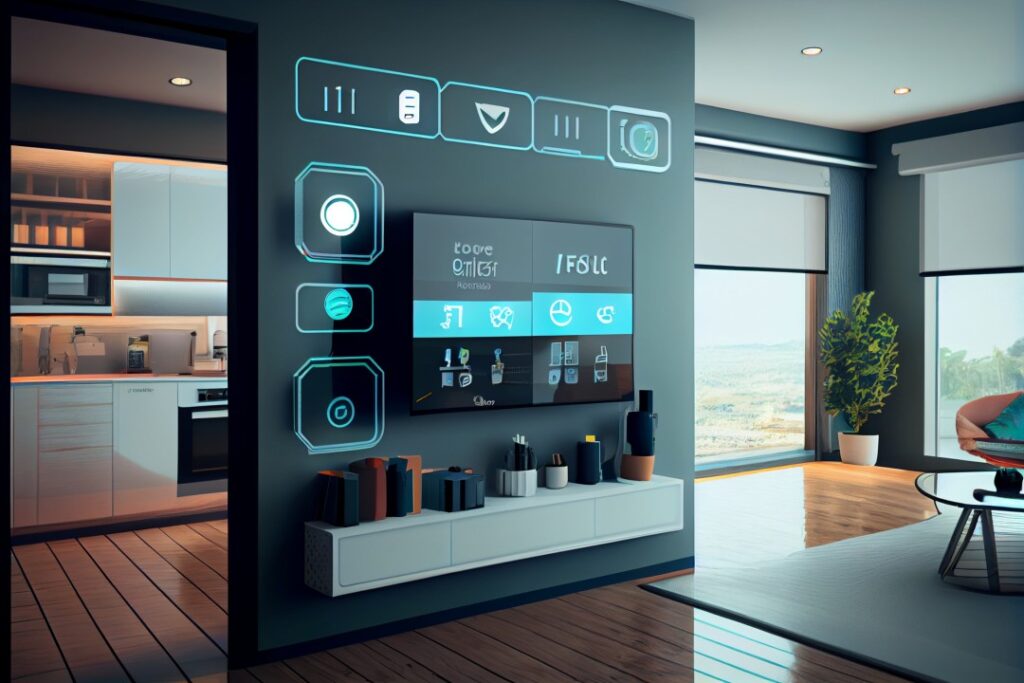The concept of smart homes is rapidly evolving, driven by advances in technology that promise to transform our living spaces into highly connected, efficient, and intelligent environments. As smart home technology continues to advance, several key trends are emerging that will shape the future of home automation.
Integration of Artificial Intelligence in Smart Homes
Artificial Intelligence (AI) is becoming increasingly integral to smart home systems. AI algorithms enhance the functionality of smart devices by enabling them to learn from user behavior and adapt accordingly. This means that smart home systems can provide more personalized experiences, such as adjusting lighting and temperature based on individual preferences and routines. AI-driven virtual assistants are also becoming more sophisticated, offering improved voice recognition and natural language processing capabilities.
Advancements in Home Security Systems
The security of smart homes is a major concern, and advancements in this area are critical for ensuring safety. Modern smart security systems utilize advanced technologies such as facial recognition, motion detection, and real-time video surveillance to enhance home security.
Integration with mobile apps allows homeowners to monitor their property remotely and receive instant alerts about suspicious activities. Additionally, smart locks and automated entry systems are becoming more prevalent, providing enhanced control over access to the home.

Energy Efficiency and Sustainability
Energy efficiency is a key trend in the development of smart homes. Advanced smart thermostats, lighting systems, and energy management tools are designed to reduce energy consumption and lower utility bills. These systems can analyze usage patterns and optimize energy use, leading to significant cost savings.
Additionally, the integration of renewable energy sources, such as solar panels, with smart home technology further enhances sustainability. Homeowners can monitor and manage their energy consumption more effectively, contributing to a greener environment.
Seamless Connectivity and Interoperability
The future of smart homes relies on seamless connectivity and interoperability between various devices and systems. As smart home ecosystems become more complex, ensuring that different devices can communicate and work together effectively is crucial.
Standards and protocols such as Zigbee, Z-Wave, and Matter are being developed to facilitate interoperability, allowing devices from different manufacturers to integrate smoothly. This enhances the overall user experience and ensures that smart home systems function cohesively.
Rise of Home Automation Platforms
Home automation platforms are gaining popularity as central hubs for managing smart home devices. These platforms provide a unified interface for controlling various aspects of the home, including lighting, security, climate, and entertainment systems. Advanced platforms offer customization options, allowing users to create personalized automation scenarios and routines. Integration with voice assistants and mobile apps further enhances convenience and accessibility.
Adoption of Smart Appliances
Smart appliances are becoming increasingly common in modern homes, offering enhanced functionality and convenience. These appliances, including refrigerators, ovens, and washing machines, are equipped with connectivity features that allow them to be controlled remotely via mobile apps. Smart appliances can provide notifications about maintenance needs, optimize their performance based on usage patterns, and even integrate with other smart home systems to streamline daily tasks.
The future of smart homes is marked by rapid advancements in technology that enhance functionality, security, and efficiency. From the integration of artificial intelligence and energy-efficient systems to the rise of home automation platforms and smart appliances, these trends are transforming how we interact with our living spaces. As technology continues to evolve, smart homes will offer increasingly sophisticated solutions that improve comfort, convenience, and sustainability.
Frequently Asked Questions (FAQs)
1. How does AI enhance smart home technology?
AI enhances smart home technology by enabling devices to learn from user behavior and adapt to preferences. This leads to more personalized and efficient automation, such as adjusting lighting and temperature based on routines.
2. What advancements are being made in smart home security?
Advancements in smart home security include the use of facial recognition, motion detection, real-time video surveillance, and automated entry systems. These technologies improve safety and provide remote monitoring capabilities.
3. How can smart homes contribute to energy efficiency?
Smart homes contribute to energy efficiency through advanced thermostats, lighting systems, and energy management tools that optimize usage and reduce consumption. Integration with renewable energy sources further enhances sustainability.
4. Why is connectivity important in smart homes?
Connectivity is crucial in smart homes to ensure that various devices can communicate and work together seamlessly. Standards and protocols like Zigbee, Z-Wave, and Matter facilitate interoperability, enhancing the overall user experience.
5. What are home automation platforms and how do they work?
Home automation platforms are central hubs that manage smart home devices through a unified interface. They allow users to control lighting, security, climate, and entertainment systems, and offer customization options for creating personalized automation scenarios.
6. How are smart appliances improving daily life?
Smart appliances offer enhanced functionality and convenience by providing remote control capabilities, maintenance notifications, and performance optimization based on usage patterns. They also integrate with other smart home systems to streamline daily tasks.
7. What trends are shaping the future of smart homes?
Key trends shaping the future of smart homes include the integration of AI, advancements in security, energy efficiency, seamless connectivity, and the adoption of smart appliances and home automation platforms. These trends are driving innovation and transforming how we live.